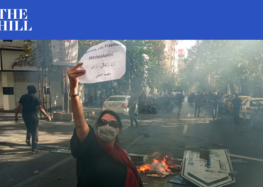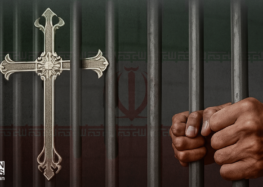“The Case Did Not Follow Its Legal Course,” Says Executed Man’s Lawyer
Hossein Aghili, lawyer of political prisoner Ali Saremi, who was abruptly executed on Tuesday, 28 December, talked to the International Campaign for Human Rights in Iran about his client’s case. “I am about to have a meeting with Tehran Judicial authorities about this right now, and I hope to be able to find an appropriate answer for this case,” he said. Ali Saremi’s daughter had told the Campaign earlier that the family had not been informed of Saremi’s execution orders, and that even when they had gone to Evin Prison to at least see Saremi for the last time, they had faced the prison personnel’s denial of the execution.
Hossein Aghili told the International Campaign for Human Rights in Iran that he doesn’t have any information over and above what everyone else knows. “The execution orders were served neither to myself nor to Mr. Saremi’s family. Suffice it to say that after the last session of his trial in the lower court, we were never informed about how the case proceeded,” said Hossein Aghili.
“I don’t know whether the case ever went to the Supreme Court or not. There are only some rumors. Some of the rumors say it went [to the Supreme Court], while some others say it didn’t. I don’t have any more information than you do. Whatever I know is through the press and your colleagues,” said Aghili when asked whether he knew whether the file had been sent to appeals court or the Supreme Court.
“We were only informed about Ali Saremi’s case through the proceedings in the lower court. He also attended his trial court himself and I defended him there. Despite reports which state I was under pressure, I was not under pressure from any organization or individual. The only problem was that myself or his family had not been served the execution orders yet; this means that the case did not follow its legal course,” Hossein Aghili added.
Prisoner of conscience Ali Saremi, was arrested on charge of affiliation with the Mojahedin-e Khalgh Organization (MEK). In February 2009, there were media reports that he had been sentenced to death on this same charge, but neither Ali Saremi, nor his lawyer ever received the execution orders. He had been transferred to Rajaee Shahr Prison since September 2010. One day before his execution, he was transferred to Evin Prison, where he was hung.
His wife, Mahin Saremi spoke with the International Campaign for Human Rights in Iran last October. “How can a person be executed for his beliefs? Yes, my husband had sympathy for the MEK, but can a person be hung because he likes a political group? His activities were limited to going to grave sites of people who shared his way of thinking and reading prayers for them,” said Mahin Saremi.






